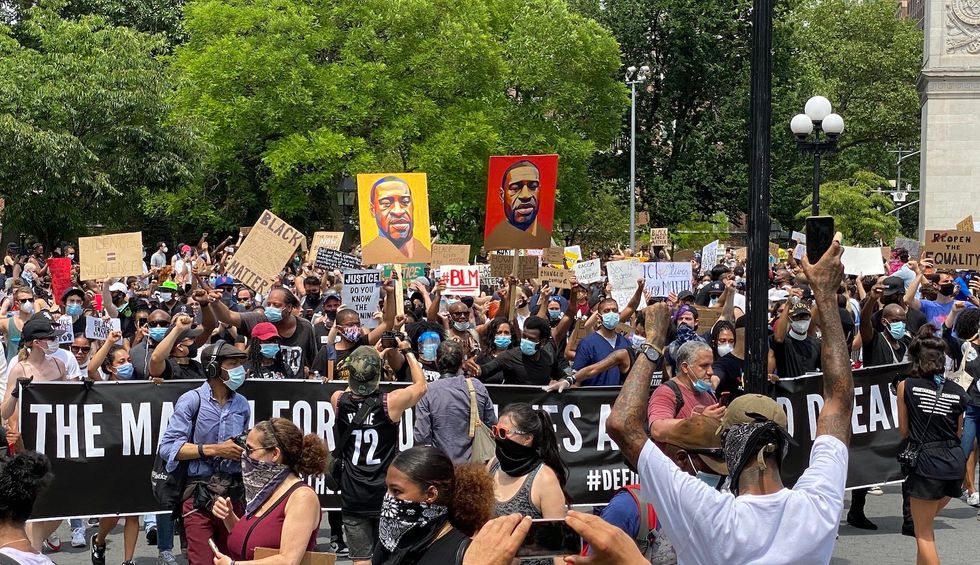Trump is out of touch with most Americans: reporter

Black Lives Matter Washington Square Park Saturday June 6 2020 New York City // Credit: David Shankbone
June 12, 2020 | 10:58AM ETTrump
The history of the United States has been one of progress followed by regression — the New Deal and the Great Society followed by Reaganomics, Roe v. Wade followed by anti-abortion extremism, the election of a two-term African-American president (Barack Obama) followed by the racism and xenophobia of Donald Trump’s presidency. But at the moment, the U.S. is — following the death of George Floyd in Minneapolis on May 25 — having a badly needed conversation about racism. And this week in the New York Times, reporters Jonathan Martin, Maggie Haberman and Katie Rogers stress that while many others are making anti-racist assertions, Trump is doubling down on his divisiveness.
“With public opinion shifting quickly on racism in America — and even some of the most cautious leaders and institutions talking openly about discrimination and reconciliation — there is still one glaring outlier: President Trump,” the Times journalists explain. “Whether it is suggesting shooting protesters or siccing dogs on them, preemptively defending the Confederate names of military installations or arguing that his supporters ‘love the black people,’ Mr. Trump increasingly sounds like a cultural relic — detached from not just the left-leaning protesters in the streets, but also, (from) the country’s political middle.”
The conversation on racism and law enforcement in the U.S. has manifested itself in a variety of ways, from the cancellation of the long-running reality show “Cops” to Philadelphia Mayor Jim Kenney ordering the removal of a statue of the late Philly Police Commissioner/Mayor Frank Rizzo. And in Richmond, Virginia and other southern cities, one is seeing the removal of Confederate monuments from public property — something Trump has spoken out against. Richmond Mayor Levar Stoney said of Trump, “He’s talking as if this is a country in the 1950s and not 2020.”
Trump, according to the Times journalists, has “emphasized fear-mongering at a time when many Americans are grappling with how to address police violence.” And they note, “It’s hard to overlook the insensitivity over race when the president’s campaign is selling ‘Baby Lives Matter’ onesies on its website.”
Martin, Haberman and Rogers point out that even Bishop Harry Jackson — a Trump ally, African-American pastor and one of the president’s religious advisers — has expressed frustration, saying, “We need to have this president and both parties say, ‘We feel your pain.’ There needs to be a discussion to African-Americans and other minorities that the loss of life historically matters. Everybody’s got to feel that from him.”
The Times journalists assert that at a time when countless whites are identifying with the “Justice for George Floyd” protestors, Trump is sounding painfully out of touch.
“As Mitch Landrieu, the former New Orleans mayor, put it: America is grabbing white people’s faces and saying, ‘Look at this, do not turn away’ — and they’re not,” Martin, Haberman and Rogers observe. “But the most powerful white person in America is averting his gaze, and it appears more discordant by the day.”